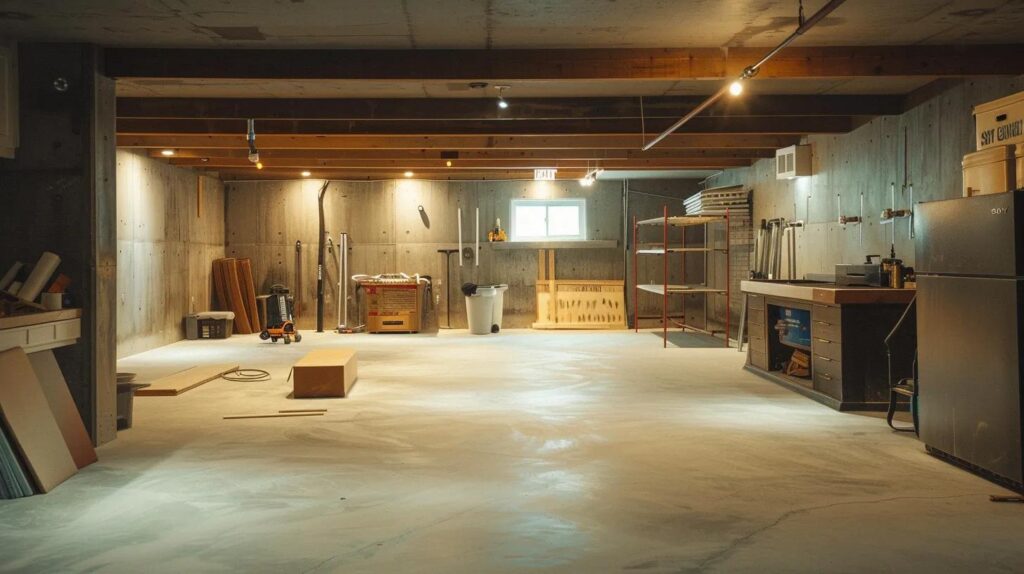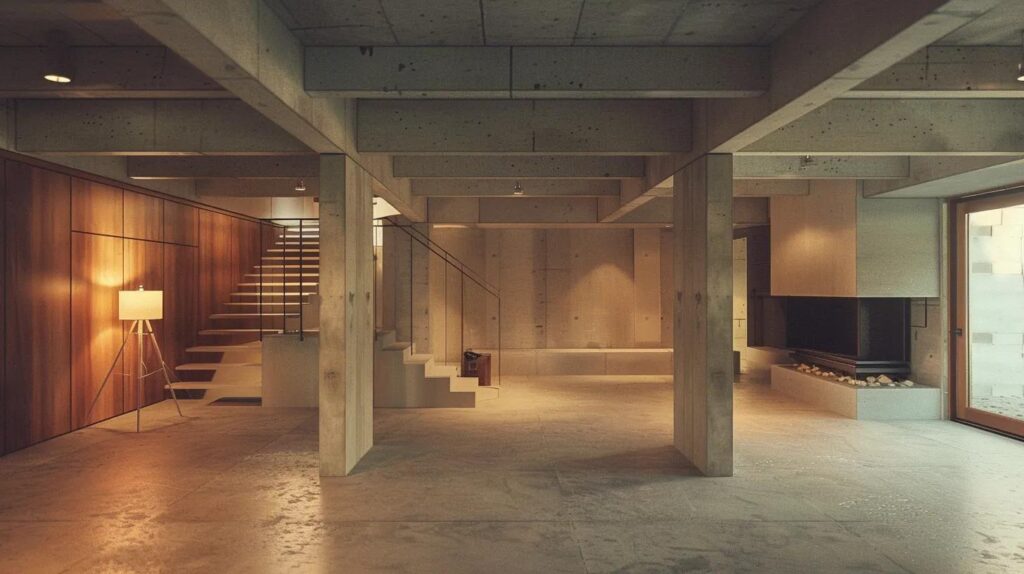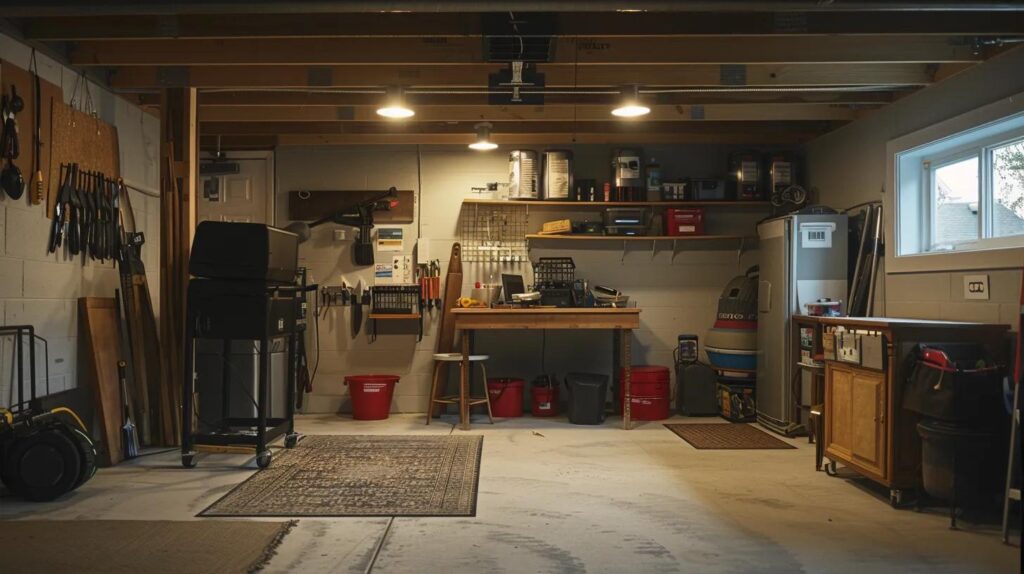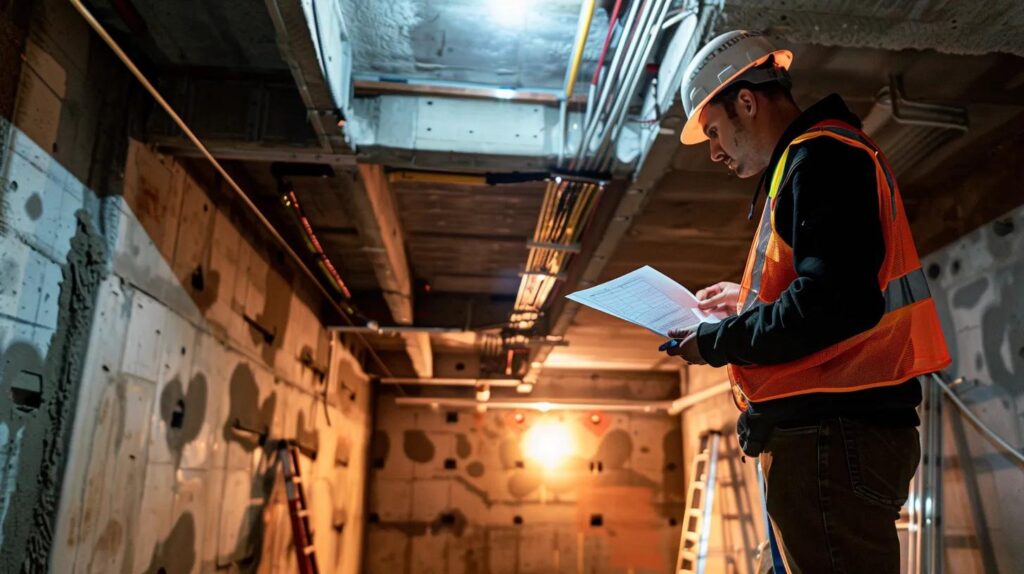
10 Key Signs Your Basement Is Ready for Finishing: A Homeowner's Guide
Key Takeaways
- A finished basement adds significant value and usable space to your home.
- Structural integrity, moisture control, and proper ventilation are essential for a safe renovation.
- Homeowners must inspect key areas such as water leaks, insulation, and exit routes before starting a project.
- Professional inspections and clear planning are critical to ensure code compliance and long-term satisfaction.
How Do I Know if My Basement Is Suitable for Finishing?

Homeowners can determine basement suitability by examining its overall structural condition and environment. A suitable basement typically features strong foundational walls and floors with minimal settling or damage, evenly distributed support beams, and few cracks in the concrete. Adequate moisture barriers, drainage systems, and a lack of water damage also indicate that the space can bear additional construction, making it an ideal candidate for basement finishing des moines. Additionally, existing fire safety and dehumidification systems help ensure that the basement meets local building codes and safety regulations.
What Structural Features Indicate Basement Readiness?
A ready basement shows intact load-bearing walls, minor hairline cracks (without significant gaps or bowing walls), and solid floor slabs, making it an ideal candidate for basement finishing des moines upgrades. Reinforced framing or modern waterproofing methods further confirm that the area can safely accommodate finishing work, paving the way for basement finishing des moines development. A professional evaluation is recommended to avoid unexpected repair costs later on.
How Does Moisture Affect Basement Finishing Potential?
Moisture directly impacts the integrity of building materials. Dampness can cause mold, wood rot, and structural weakening. A dry, well-insulated basement is less at risk. Homeowners should monitor for condensation or pooling water and use dehumidifiers, waterproofing membranes, and proper drainage systems to protect finishes, whether installing plaster, flooring, or insulation materials.
Why Is Proper Ventilation Important Before Finishing?
Proper ventilation prevents harmful moisture buildup and the trap of indoor pollutants. Basements often trap stale air, which leads to odors and mold. Effective ventilation systems promote fresh air circulation, enhancing quality and reducing the risk of deterioration. This is especially vital during finishing when materials like drywall and paint need proper airflow to cure and last.
What Are the Top 10 Signs Your Basement Is Ready for Renovation?
Evaluating physical and environmental signs helps homeowners decide if their basement is suited for renovation. Each sign is a critical component for a successful project.
Is the Basement Free From Water Leaks and Flooding?
A leak-free basement is essential. Homeowners should check that there is no history of flooding or persistent water seepage. Any signs of water damage, such as efflorescence or water stains, must have been completely remedied to ensure that insulation and framing remain intact.
Are the Walls and Floors Structurally Sound?
Walls and floors should not exhibit major cracks, shifts, or sagging. Professional inspections confirm that the original construction materials remain sound enough to support additional loads from finishing work.
Does the Basement Have Adequate Ceiling Height?
Sufficient ceiling height is critical for comfortable use and future remodeling flexibility. Local building codes specify minimum heights, and a higher ceiling improves lighting and a sense of spaciousness.
Is There Proper Electrical and Plumbing Infrastructure?
A basement ready for finishing must have updated electrical wiring, outlets, and plumbing that meet current codes. Reliable electrical panels and plumbing lines support modern living and help avoid fire hazards and costly renovations.
Are There No Signs of Mold or Mildew?
A mold-free basement indicates effective humidity and moisture control. Regular inspections should show no musty odors or discoloration, ensuring that the space is safe for habitation.
Is the Basement Well-Insulated and Dry?
Good insulation, such as spray foam or fiberglass, paired with a dry environment, minimizes energy costs and condensation problems. Proper insulation is key to long-term durability and comfort.
Are Egress Windows or Exits Present for Safety?
For living spaces, safety codes require egress windows or proper exits. These features provide crucial emergency escape routes, improve market value, and enhance safety appeal.
Is the Basement Easily Accessible From the Main Home?
Direct and convenient access from the main living areas is important. A seamless design that avoids steep stairs or hidden doorways facilitates ease of use and enhances natural light flow.
Has the Basement Been Professionally Inspected?
A comprehensive professional inspection can reveal issues that might not be apparent to homeowners. A detailed report with repair recommendations builds confidence in proceeding with the renovation while ensuring compliance with building codes.
Is There a Clear Plan for Basement Use and Design?
A well-defined design plan—for example, converting the space into a family room, home office, or rental unit—helps set budgets, choose materials, and direct overall design. Clear planning ensures that lighting, flooring, and ventilation are tailored for long-term functionality and comfort.
How Can Homeowners Prepare Their Basement for Finishing?

Preparation is key to a successful renovation. Homeowners should complete necessary repairs, address moisture concerns, and update utilities before beginning the finishing process. This preparation helps mitigate future issues and increases the basement’s longevity.
What Repairs Should Be Completed Before Renovation?
Essential repairs include fixing cracked walls, damaged flooring, and outdated electrical panels. Structural reinforcements, sealing cracks, and updating plumbing form the foundation for a safe finishing project.
How to Address Moisture and Waterproofing Issues?
Moisture must be controlled for lasting success. Homeowners might install sump pumps, vapor barriers, and ensure proper drainage and grading. Consulting waterproofing experts can help protect the basement from future water intrusion.
When Should You Consult a Basement Finishing Expert?
If uncertainties about the basement‘s condition or extensive repairs arise, consulting a specialist is advised. Professional advice on insulation, framing, and design ensures that the renovation meets local code requirements while providing a realistic plan and budget.
What Are Common Basement Finishing Challenges to Watch For?
Basement renovations can present unforeseen challenges impacting both quality and budget. Knowing these challenges helps homeowners prepare adequately for potential issues.
How Do Foundation Cracks Impact Basement Renovation?
Even minor cracks can signal serious structural problems and possible water seepage. Professional evaluation of cracks determines necessary repairs and ensures lasting safety.
What Are the Risks of Poor Ventilation and Humidity?
Inefficient ventilation leads to high humidity and promotes mold growth, which compromises comfort and the integrity of finishing materials. Investing in effective dehumidifiers and fans is essential for a healthy basement environment.
How Can Electrical and Plumbing Limitations Affect Finishing?
Outdated electrical or plumbing systems can limit functionality and may need upgrading to meet modern standards. A proactive inspection reduces the risk of unexpected costs during or after the renovation.
Why Is Professional Basement Inspection Important Before Finishing?

A professional inspection uncovers hidden issues and verifies that the renovation plan complies with safety and building codes, reducing unforeseen expenses.
What Does a Basement Inspection Include?
Typically, inspections cover structural integrity, moisture levels, electrical and plumbing systems, and potential mold or pest issues. This comprehensive evaluation informs homeowners and guides targeted renovations.
How Can Inspections Prevent Costly Renovation Mistakes?
Early detection of issues like outdated wiring or foundational weaknesses allows homeowners to adjust plans and budgets before major construction begins, saving time and money.
When Should You Schedule a Basement Inspection?
Scheduling an inspection before planning any major renovation—and again after significant repairs—ensures that the finishing work is built on a secure foundation.
How Does Basement Finishing Add Value to Your Home?
Finishing a basement can significantly boost your home’s market value by turning unused space into functional living areas. This added square footage can be used for extra bedrooms, entertainment zones, or rental units, directly benefiting both lifestyle and resale value.
What Are the Financial Benefits of a Finished Basement?
A finished basement increases square footage without the cost of external additions, which can raise resale value by up to 20% compared to similar homes without finished basements. This cost-effective conversion maximizes return on investment.
How Does a Finished Basement Improve Living Space?
By creating additional usable areas, a finished basement can serve multiple purposes—from a home theater or gym to a playroom—enhancing daily living and overall home functionality.
What Design Options Maximize Basement Usability?
Optimized floor plans, energy-efficient lighting, and proper insulation all contribute to a functional basement design. Flexible layouts that accommodate different needs help maximize the available space.
What Are the Next Steps After Confirming Basement Readiness?

After confirming readiness, the next steps involve selecting a contractor, detailed planning, and budgeting to ensure the renovation proceeds smoothly.
How to Choose the Right Basement Finishing Contractor?
Choose an experienced contractor with verifiable credentials and a track record in basement renovations. Look for professionals knowledgeable about local building codes and specific basement challenges. Multiple bids, portfolio reviews, and client testimonials provide reassurance of quality work.
What Should Be Included in a Basement Finishing Plan?
A comprehensive plan should detail design layouts, material selections, timelines, permits, and a budget breakdown. Make sure to include potential structural repairs, system upgrades, and finish choices, with clear communication between the homeowner and contractor.
How to Budget for Basement Renovation Costs?
When budgeting, account for unforeseen issues, professional fees, and material costs. Adding a contingency allowance of 10–20% can help cover unexpected expenses and keep the project on track financially.
Final Thoughts
A finished basement offers outstanding benefits by increasing living space and home value. With a focus on structural integrity, moisture control, and proper planning, homeowners can transform an underutilized area into a safe and appealing extension of their home. Following professional inspections and a clear, detailed plan ensures that the renovation will enhance both functionality and market appeal.
Frequently Asked Questions
Q: How do I confirm my basement is free of water leaks? A: Inspect for water stains, dampness, and test drainage systems to ensure no leaks exist before finishing.
Q: Why is structural soundness crucial before finishing? A: Structural soundness ensures safety and longevity; compromised areas may lead to costly repairs later.
Q: What role does proper ventilation play in basement finishing? A: Good ventilation prevents moisture buildup and mold growth, enhancing indoor air quality and material longevity.
Q: How often should a professional inspection be done? A: Schedule an inspection before starting renovations and after major repairs to ensure the basement’s condition.
Q: Can a finished basement really increase home value? A: Yes, finished basements can boost property resale value by adding functional living space and appealing design features.






